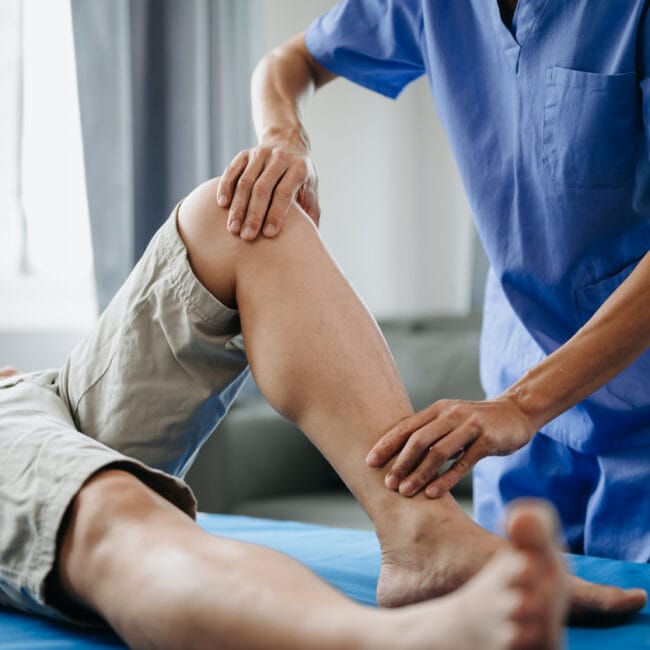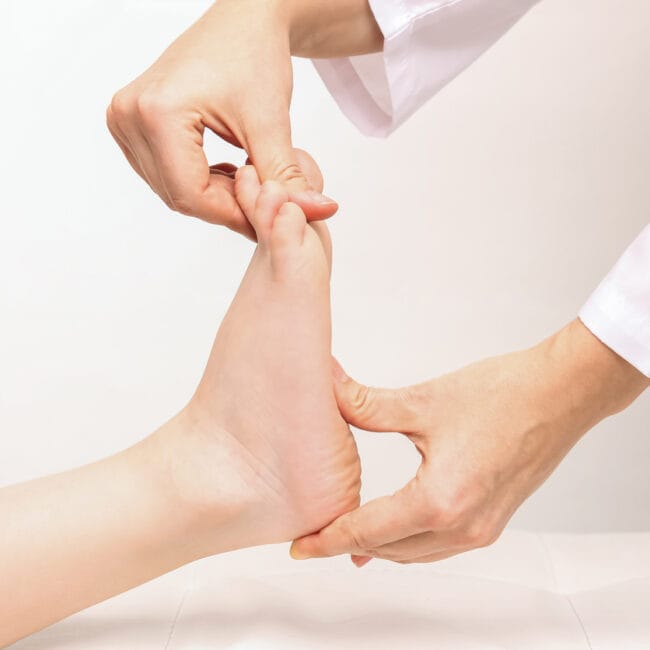Definition of menopause
Menopause usually occurs in people who menstruate between the ages of 45-55. Menopause happens when no period has occurred in 12 months. Menopause can happen naturally due to hormonal changes but also following surgical removal of the ovaries or uterus or due to treatments like chemotherapy.
People often experience symptoms prior to the menopause – this is called perimenopause. Symptoms can include hot flushes, joint pain, headaches, irregular periods, mood swings and brain fog. These symptoms are due to reduced oestrogen levels and can start years before periods stop and can often continue after the last period.
How can diet help?
Menopause can increase the risk of osteoporosis (brittle bones), heart disease and weight gain. Thankfully, diet and lifestyle can play an important role in managing these risks and reduce symptoms associated with menopause.
Bone health
Men and women start to lose calcium from their bones at around the age of 35. The loss of oestrogen in menopause can worsen this loss of calcium which leads to an increased risk of osteoporosis (brittle bones). Following a well-balanced diet with a focus on including calcium-containing foods can help to give our bones important nutrients and help to reduce the risk of developing osteoporosis. Foods that are rich in calcium include:
Dairy foods e.g. milk, cheese and yoghurt. Aim for 2-3 servings of these foods per day.
Dairy alternatives fortified with calcium such as soy milk.
Tofu set with calcium chloride (E509) or calcium sulphate (E516).
Dark leafy green vegetables.
Fish, particularly sardines, whitebait and salmon.
If you are eating a balanced diet containing the above calcium-rich foods, there is no need to take a calcium supplement unless advised by your doctor or dietitian.
Spinach, beans, seeds, nuts and dried fruits also contain calcium; however, they also contain compounds called oxalates and phytates which can reduce the amount of calcium your body absorbs.
Vitamin D is needed for the absorption of calcium, therefore is it important to take a vitamin D supplement in the Autumn and Winter months as we get the majority of our vitamin D from the sun during the Spring and Summer months.

Weight gain
Along with the natural ageing process, the hormonal changes in menopause can lead to weight gain. This is due to loss of muscle mass and redistribution of body fat, particularly around the middle section (tummy). To help with this, reduce portion sizes and consumption of high fat foods. Resistance exercises such as weight training can help to preserve or even build muscle mass.
Heart health
Menopause can increase the risk of developing heart disease. Therefore, eating a heart healthy diet can manage blood pressure and cholesterol levels and help to reduce this risk:
Eat minimum 5 portions of fruit and vegetables each day
Swap saturated fats like butter and cream for unsaturated oils like olive oil and rapeseed oil
Swap white bread and pasta for the brown versions
Eat fish twice per week. Choose oily varieties like salmon, mackerel or trout.
Reduce sugary, salty and highly processed foods like sweets, crisps and takeaways
Aim to have beans, lentils and/or nuts 4-5 times per week.
Plant oestrogens
Also known as phytoestrogens; plant oestrogens appear to have similar effects to human oestrogen. Plant oestrogens are found in foods such as soya products and seeds. If these foods are eaten regularly in sufficient quantities, they can have mild oestrogen–like effects and result in reduction of menopausal symptoms for some women.
If you are thinking of adding foods containing plant oestrogens to your diet, please consider the following points:
It can take two to three months of eating these foods regularly to see any benefits
They seem to work better for some people, which is thought to be down differences in gut bacteria.
Consuming plant oestrogens several times a day appears to be more effective than taking one larger does.
Caffeine and alcohol
It is worth noting that caffeine and alcohol can make hot flushes worse, so it may be sensible advice to limit these if you suffer from this symptom. Food and drink that contains caffeine includes black tea, coffee, cola, green tea and chocolate. Choose decaf tea and decaf coffee or naturally caffeine-free herbal teas like camomile or peppermint.
Stay within the safe recommended limits for alcohol, which is 11 standard drinks per week with two to three alcohol-free days per week.
Other lifestyle advice
Exercise regularly. Aim for 150 minutes of moderate intensity cardiovascular exercise per week (e.g. walking, swimming, dancing) and 2 resistance training sessions per week (e.g. weights, yoga).
Sleep in a cool room
Find ways to relax and manage stress
Wear layers that can be easily removable when having a hot flush.
Need personalised guidance for managing menopause symptoms through diet? Our specialist dietitians can help you support bone, heart, and overall health. Explore our Menopause & Nutrition services today.















